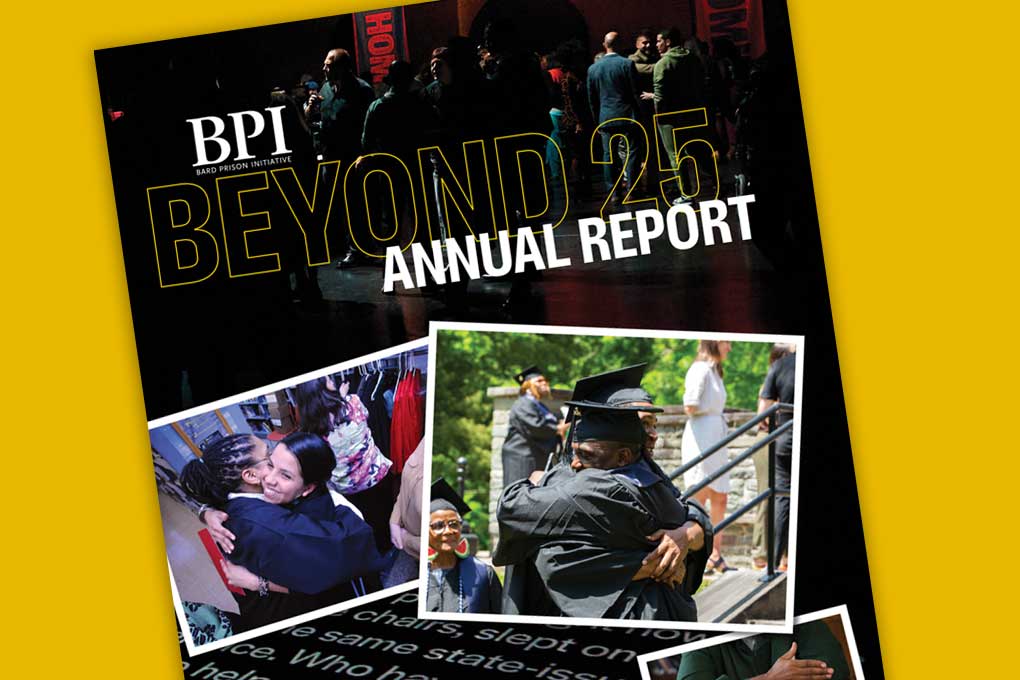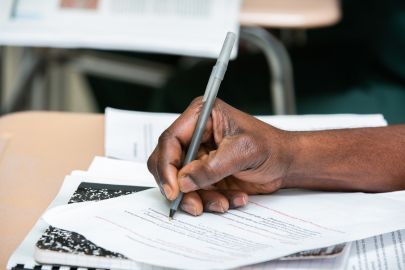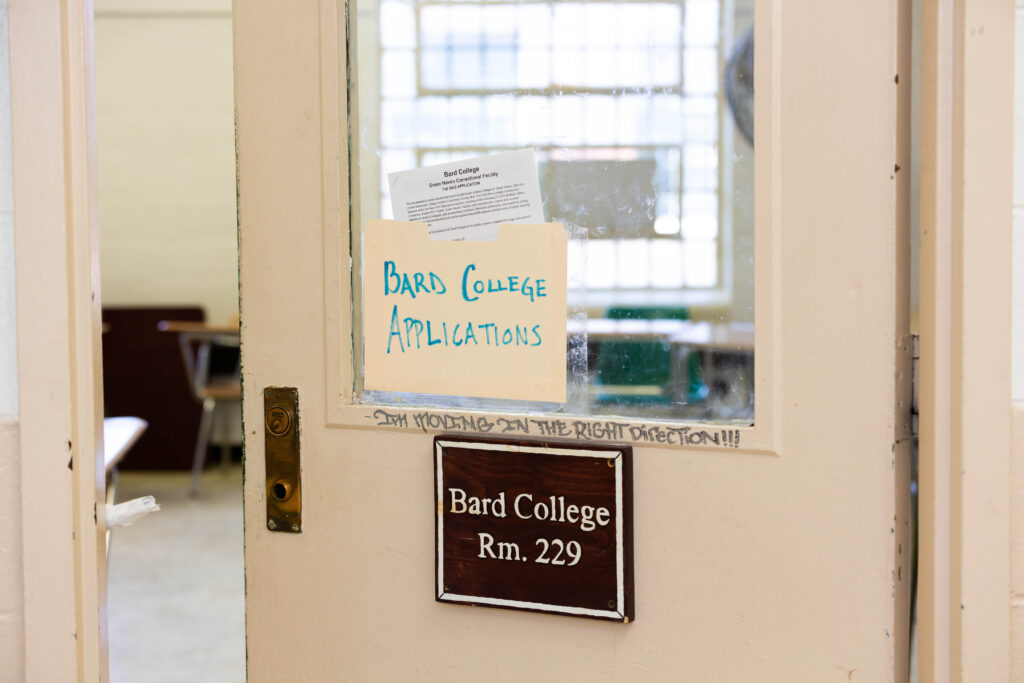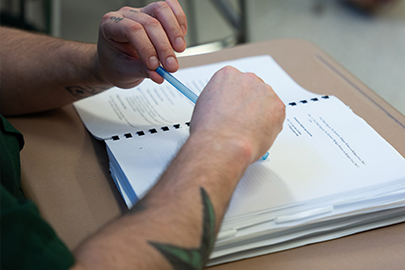Among the hundreds of BPI students starting the new academic year are twenty-four grad students pursuing Bard College Master of Arts Degrees in Public Humanities at Eastern NY Correctional Facility.
The Bard master’s degree at Eastern began with a pilot cohort of BPI bachelor’s degree graduates last year. In Fall 2025, it now welcomes a second cohort composed not only of Bard undergraduate alumni but also alumni of other college-in-prison institutions, including Bennington College, Mercy University, Mount Saint Mary College, and St. Thomas Aquinas College. After reviewing written applications from prospective grad students, BPI admissions staff travelled to men’s correctional facilities across New York State this summer to interview candidates. Those who were offered and accepted admission then moved to Eastern in August.
The two-year graduate degree program, offered entirely in person, creates an opportunity for students to leave prison with a master’s degree that positions them to apply liberal arts learning in their communities, civic lives, and careers. The degree emphasizes effective communication of expert knowledge to a variety of audiences and the meaningful engagement of communities in the creation of policies, scholarship, and art relevant to them.
“The goal from the beginning has been to develop a nimble program that facilitates rigor in collaborative learning while advancing core competencies in gathering, processing, and communicating information,” says Dr. Eilin R. Perez, a historian who had previously served in a postdoctoral position in Public Humanities at Yale University, helped design the Bard master’s degree, and is currently teaching Introduction to Public Humanities at Eastern.
The introduction of BPI’s first master’s degree followed the successful expansion of BPI’s bachelor’s degree programs across six correctional facilities. As more and more alumni complete bachelor’s degrees, a growing number of graduates who have not yet left prison are focusing on how to best use that remaining time. The master’s degree adds to established opportunities like BPI’s curricular specialization in Public Health, through which many BPI alumni have pursued graduate degrees and employment after returning home.
BPI students at Eastern were instrumental in the creation of the master’s degree program. During the summer of 2021, just weeks after faculty and staff were first permitted back into the facilities following the COVID pandemic, bachelor’s degree students and graduates submitted a written proposal to introduce a graduate degree that would enable them to build on their academic accomplishments and prepare to establish and develop careers post-release. They remained actively engaged through the phases of planning and implementation and now, as members of the pilot cohort, are on track to graduate with their master’s degrees in June 2026.
As part of the MA in Public Humanities, students take courses in fields such as History, Political Philosophy, and Documentary Literature. Exposure to varied academic disciplines is anchored in an attention to methods and skills that can be transferred across contexts. Along the way, references to case studies and conversations with practitioners help students develop experience that they plan to apply through careers in the policy world, the nonprofit sector, cultural institutions, and the academy.



